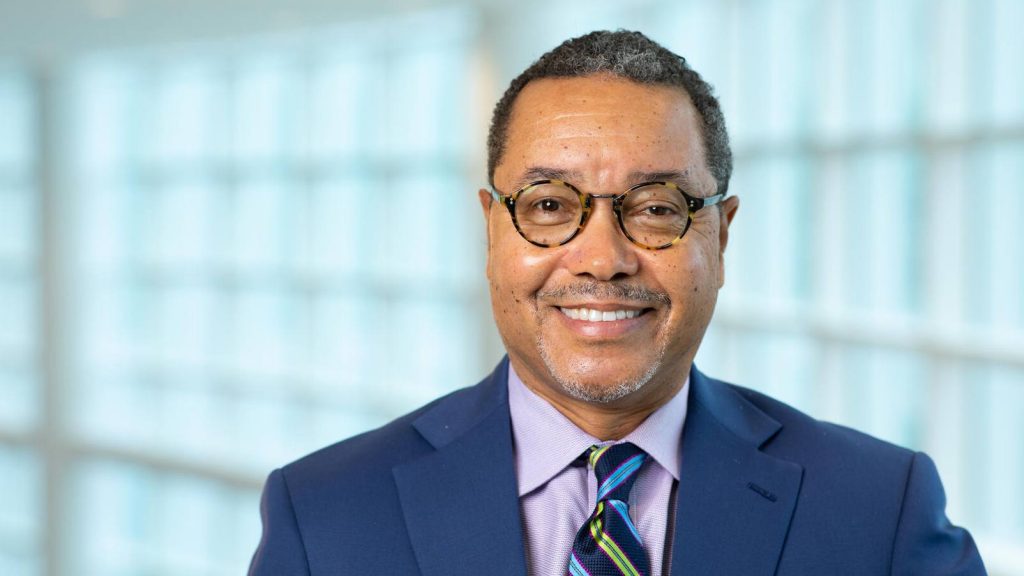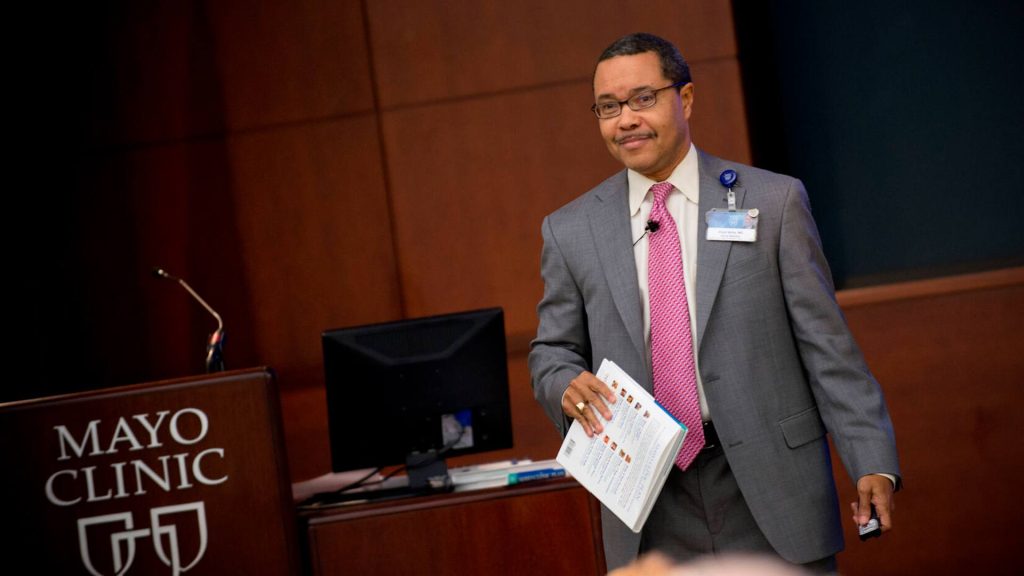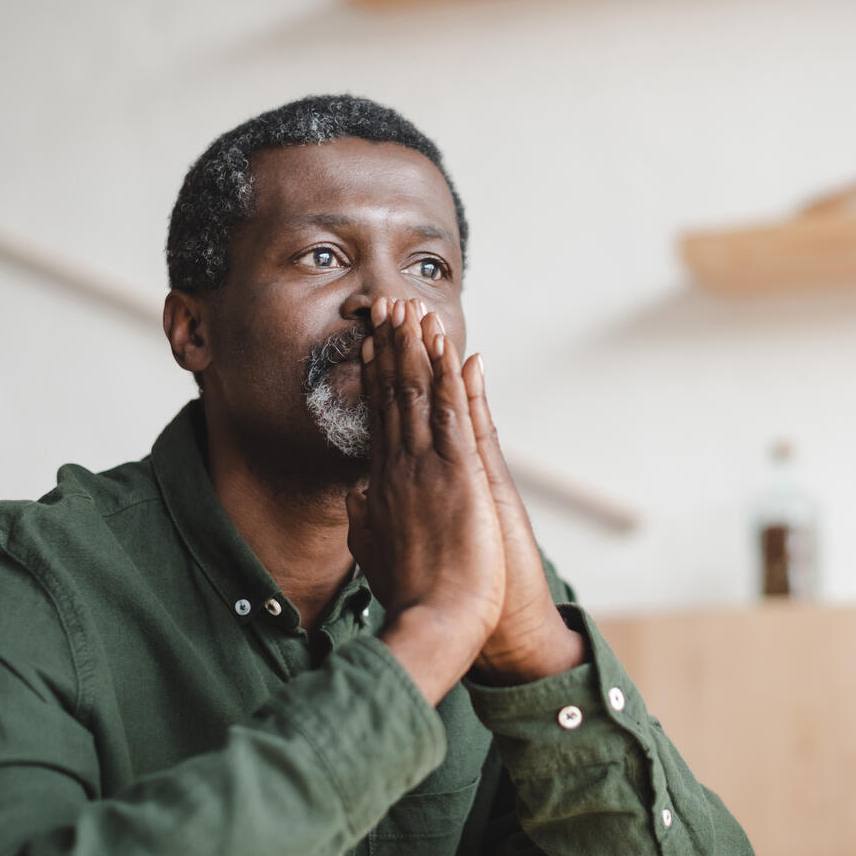-
Diversity
Black History Month: Dr. Floyd Willis on the importance of inclusive Alzheimer’s Disease research

Black History Month is a month for all people to celebrate and learn about the diverse and important contributions of Black Americans to American society and culture, as well as to reflect on the ongoing fight against racism, inequity and discrimination.
Mayo Clinic News Network is profiling Mayo Clinic physicians who are focused every day on achieving health equity through their work.
Meet Dr. Floyd Willis, a family medicine physician and investigator at the Mayo Clinic Alzheimer's Disease Research Center. He is dedicated to connecting minority patients to research, clinical trials and care.
Journalists: Broadcast-quality video (2:27) is in the downloads at the end of this post. Please "Courtesy: Mayo Clinic News Network." Read the script.
"Many describe Alzheimer's and other memory loss diseases as the silent killer," Dr. Floyd Willis says. "It can insidiously creep into your family or your neighborhood."
Dr. Willis has been a practicing family medicine physician for more than 30 years. He's drawn to problem-solving, particularly ones that have a community-wide impact.

"Black people in America are about twice as likely to get Alzheimer's disease and other memory loss disorders — and there are interesting and complicated reasons behind that," Dr. Willis says.
Connecting the community to solutions is why he has helped the Mayo Clinic Alzheimer's Disease Research Center in Jacksonville, Florida, recruit participants into research studies.
"It's extremely important to understand how we can predict who might get it and, if possible, discover early treatments for (Alzheimer's disease)," Dr. Willis says.
High blood pressure, diabetes and obesity have been linked to an increased risk of Alzheimer's disease — factors that are also disproportionately higher in Black Americans.
"Often, communities are unaware that treating those chronic diseases and keeping the body healthy also keeps the brain healthy," Dr. Willis says. "It's important that we get this information out, as it may be a way to reduce some of this increased risk for African Americans."
The Alzheimer's Disease Research Center's outreach in Jacksonville's historically Black communities revealed a deeper understanding of cultural barriers.

"It's key to build trust for someone to reveal all of these very personal things about their mind, their brain, their thought, which some people equate to their spirituality," Dr. Willis says. "Once you can convince people that, yes, you can trust the system, and yes, memory loss is something that we should talk about — it's not just a thing that happens to everyone, as they get older — some of it can be prevented."
Dr. Willis says a change in memory doesn't automatically mean a diagnosis of Alzheimer's disease.
"The things that can affect the heart and the things that can affect the kidneys can also affect the brain," Dr. Willis says. "Work with a primary care physician to get all of those things that injure the arteries under control."
In his decades of outreach and advocacy, Dr. Willis says what drives progress is diverse representation — from patients and study participants to researchers and physicians — and "...partnering with the community."
"Involving the community in the work that (researchers) are doing, asking them what they find important, what they want us to study, and then try to put your priorities in with them," he says.
Related posts:
- Black History Month: Dr. Alyx Porter on shaping the future generation of physicians
- Read more about Alzheimer's disease research at Mayo Clinic
- Plasma biomarker screening could improve accuracy, health equity in Alzheimer’s disease diagnosis
For the safety of its patients, staff and visitors, Mayo Clinic has strict masking policies in place. Anyone shown without a mask was recorded prior to COVID-19 or recorded in an area not designated for patient care, and other safety protocols were followed.







